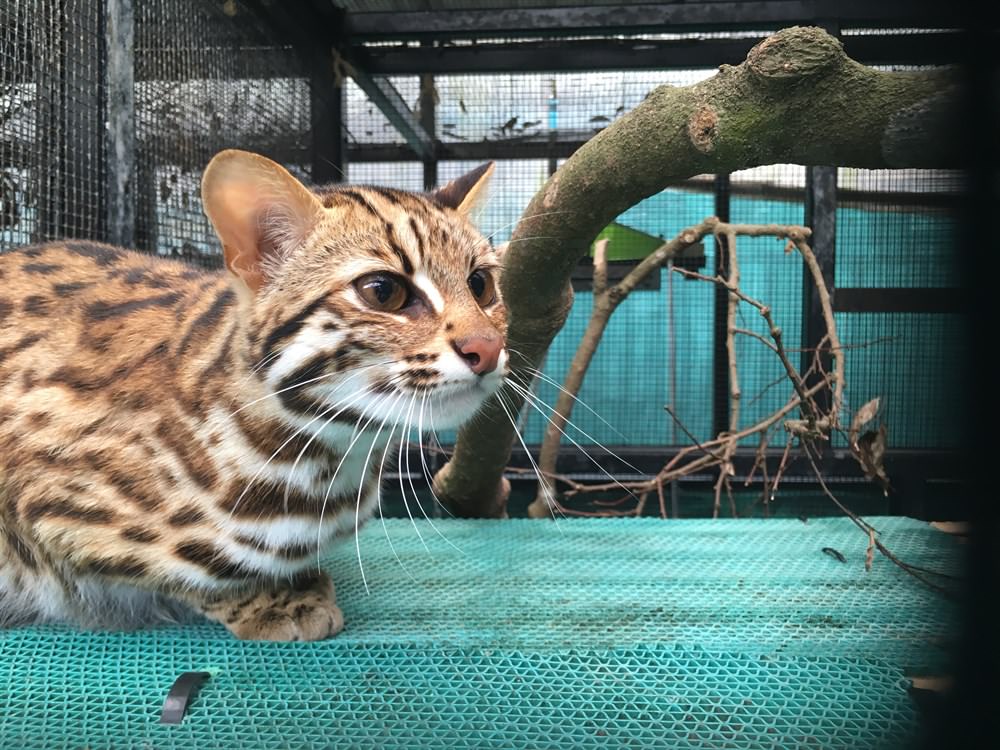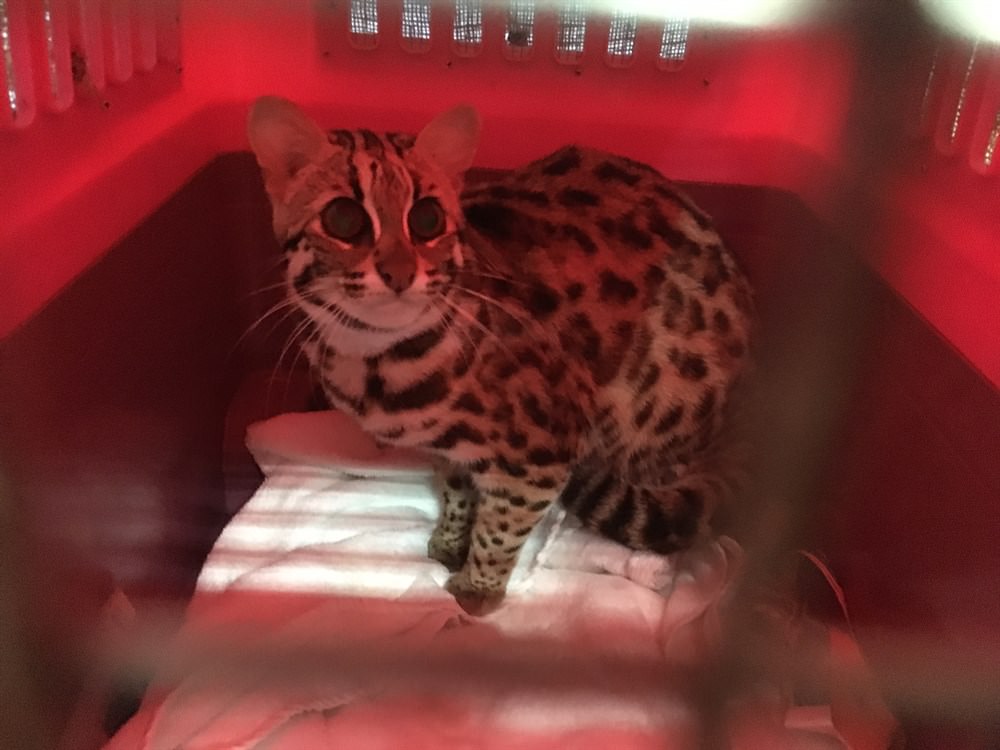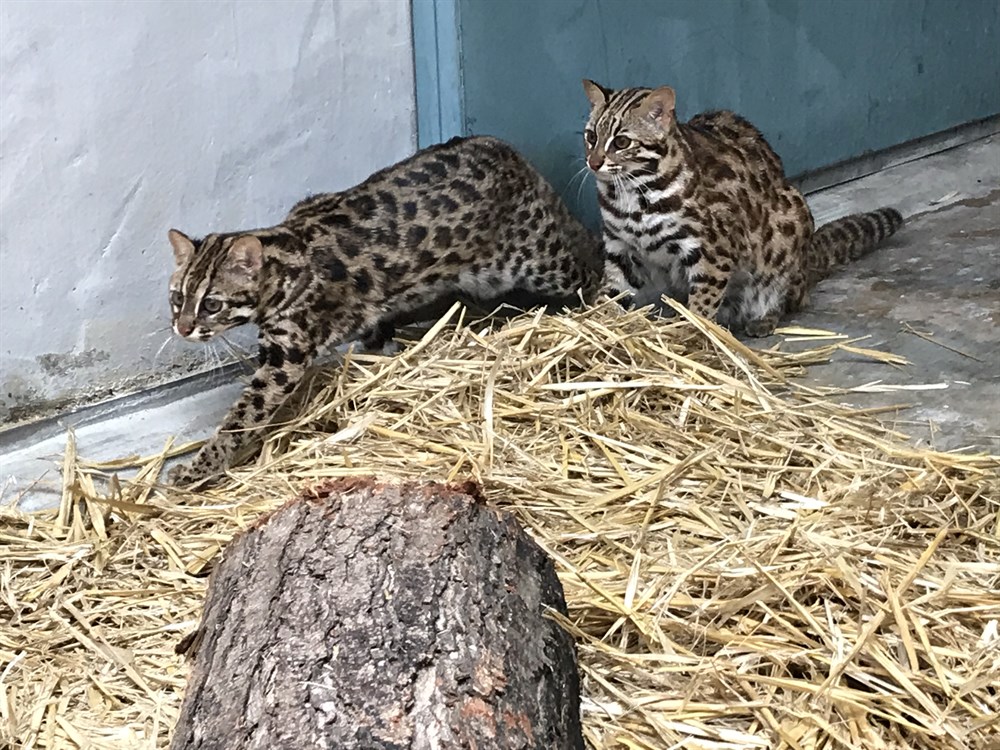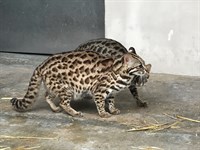Leopard Cats seized by the Authorities in 2018 arrive safely at their new home in Night Safari Singapore

Leopard Cats are listed on CITES Appendix II which controls the international trade of the species and they are protected under the Wild Animal Protection Ordinance (Cap 170) in Hong Kong. (Photo: KFBG)
On 27th February two Leopard Cats (Prionailurus bengalensis) seized by the Authorities in 2018 arrived safely in their new permanent home in Night Safari Singapore, which is operated by Wildlife Reserves Singapore.
The two cats were transferred to KFBG Wild Animal Rescue Centre (Rescue Center) after being seized and were cared for by the rescue team. Both cats gained weight in captivity an indication that they were fairly relaxed and eating well.
When possible, we release native animals back to the wild. In this case, these two Leopard Cats were of uncertain origin and not suitable for release to the wild in Hong Kong. We managed to find a suitable home at Night Safari Singapore which has experience with this species, and decided this would be the best option for their future. They are settling in well in their new home and will be part of the educational and conservation programmes.



A Leopard Cat prior to its transfer flight for Singapore and the prepared cat baskets in which the two cats travelled (Photo: KFBG)


The two Cats exploring the new environment of the quarantine facility after their arrival on 27 Feb 2019 (Photo: Wildlife Reserves Singapore)
What can you do to help protect Leopard Cats?
Please do not support the illegal wildlife trade. You can help protect this species and others by not buying Leopard Cats as pets, by not buying Leopard Cat fur products, and by reporting any suspected illegal wildlife trade activities to the Agriculture, Fisheries and Conservation Department at 1823 or notifying the KFBG hotline at 2483 7200. In the wild Leopard Cats are active at night, so please drive carefully when in the countryside to avoid road kills. We can all help protect the populations of this fascinating animal and leave them where they belong – in the wild!


